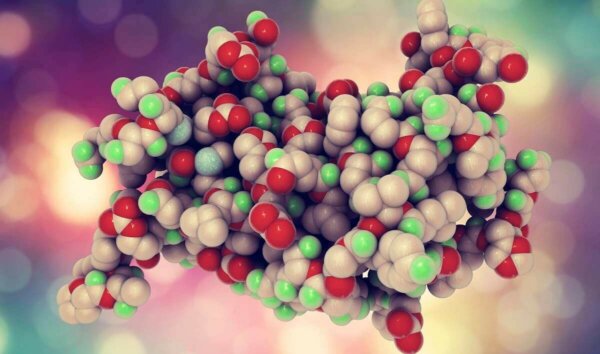All About Stress Hormones


Written and verified by the psychologist Valeria Sabater
Stress hormones are decisive in every living being. Running away from danger, reacting to the demands of the environment, activating ourselves in order to solve a problem, or simply “awakening” all our mental resources to take an exam. These are all essential processes that these small, but powerful, molecules play a role in.
When you hear the word “stress”, you probably always associate it with negative experiences. We all know its effect on our lives. In fact, most of us have gone through times when worries and external pressure have resulted in muscular pain, digestive disorders, headaches, insomnia, and other negative health effects.
The physiological changes that these hormones create can be very intense and exhausting.
However, we must be clear about one aspect. Without these chemical reactions, human beings wouldn’t have survived. The stress response has allowed us to react to everyday adversities in order to adapt to an increasingly complex environment.
Thus, even though today we don’t have to defend ourselves from the same dangers as our prehistoric ancestors, the demands that surround are still challenging.
Understanding the mechanics of the hormonal network associated with this emotional response is always interesting and useful.

What are the stress hormones?
Each of us is programmed to react to any threat, whether it’s external, from a specific danger, or triggered by an internal concern. Nowadays, situations such as those caused in a work environment, due to economic or emotional problems, act as stress triggers.
Threats, dangers, and challenges are now invisible. They can’t be seen, as they used to be when our ancestors faced, for example, a predator. This natural stress response allows us to activate an endless number of physical and psychological resources. These help us to face any potential dangers, and all of this is actually quite normal and to be expected.
However, the real problem comes when this state of stress is constant. If we don’t address the problems in a suitable manner, and if we don’t make use of adequate coping mechanisms, the stress hormones will continue to act. That’s when physical discomfort and health risks appear.
Let’s find out how this network of hormones works.
Cortisol, the hormone that activates us
Cortisol is a steroid hormone that regulates a wide range of processes in the human body. Although it plays a critical role in helping us respond to stress, it’s also key in many metabolic tasks, as well as those related to the immune response.
Cortisol secretion is regulated by the hypothalamus and the pituitary and adrenal glands.
- Almost all human cells contain receptors for cortisol, which gives us a clue to just how many processes it’s involved in.
- For example, it’s key in controlling the body’s blood sugar levels, promoting salt and water balance, and blood pressure.
- Cortisol levels are higher during the day in order to allow us to be more active in daytime hours.
- On the other hand, when we go through long periods of stress and anxiety, the excessive release of cortisol can have serious effects. These include hypertension, mood swings, muscle pain, osteoporosis, and even changes in body weight.

Adrenaline, helping you act in the face of danger
When you go through a stressful situation, your hands sweat, your heart races, and your mouth dries up. This response is mediated by one of the most important stress hormones: adrenaline or epinephrine.
We should point out here that it also acts as a neurotransmitter. The body produces it in the adrenal glands, or adrenals, and releases it mainly in times of stress, danger, and excitement.
Here are the changes that adrenaline generates in the body when it begins to be released into the bloodstream. Let’s remember that all these changes have one goal: to prepare the body to fight or flee.
- It increases the heart rate.
- It increases the respiratory system’s capacity so that we can breathe in more air.
- Adrenaline breaks down glycogen (a polysaccharide energy reserve found in the muscles and liver).
- It expands blood vessels to optimize blood flow.
- Finally, it facilitates the connection between nerve cells so that information travels faster.
Vasopressin, a stress response modulator
Vasopressin is known as the antidiuretic hormone, which means that it promotes fluid retention. However, in recent years, scientists have discovered that it’s an important hormonal component of our stress response.
Studies such as this one conducted at the University of Edinburgh in 2017, give us data that helps us to understand their significance a little better.
- Vasopressin has a modulating effect on the body’s response to stressful or anxious situations.
- Among the stress hormones, vasopressin has a key function in promoting the release of ACTH. This biological element facilitates the secretion of corticosteroids, such as cortisol.
- There’s also another interesting aspect. This hormone is produced in a series of hypothalamic neurons that control the response to stressful environmental challenges. This means that, when the brain interprets that we’re facing a challenge, it releases this particular element. Why? In order to initiate an entire series of essential biochemical changes so that we can react to the situation.
Conclusion
In conclusion, as you can see, each sequence that the brain activates to respond to everyday risks has no other purpose than to simply allow us to act. This is, after all, the purpose of stress: to act when faced with danger and to try to eliminate the threat. Letting those situations of worry and anguish drag on is what takes its toll on us. Keep that in mind.
All cited sources were thoroughly reviewed by our team to ensure their quality, reliability, currency, and validity. The bibliography of this article was considered reliable and of academic or scientific accuracy.
- Antoni, Ferenc. (2017). Vasopressin as a Stress Hormone. Neuroendocrinology and Neurobiology (págs. 97-108) 10.1016/B978-0-12-802175-0.00009-7.
This text is provided for informational purposes only and does not replace consultation with a professional. If in doubt, consult your specialist.








